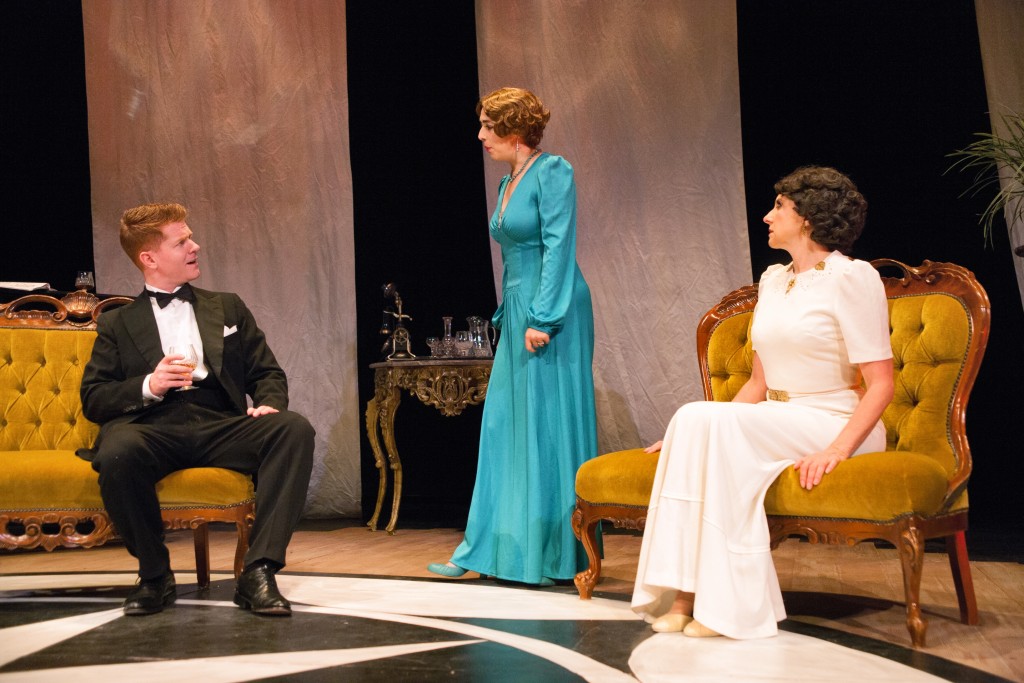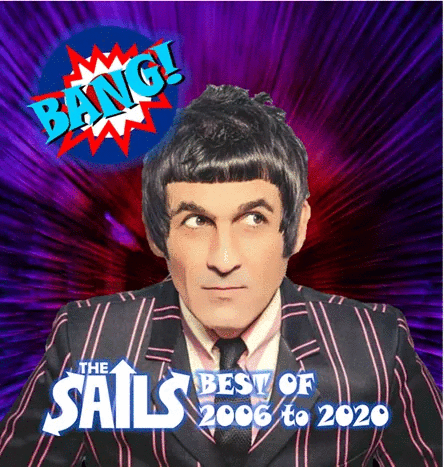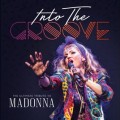
What is truth? And how much of it can we really take? These two ever-pertinent questions are explored through JB Priestley’s 1930s play, Dangerous Corner – a da-capo style plot highlighting that, in the demand for truth, a dangerous corner may have to be turned.
The latest adaptation of JB Priestley’s Dangerous Corner as the second of three plays within The Thriller Season was not how I’d envisage a dinner party within the 1930s panning out.
I mean, there’s something bizarre in the idea that millennial dinner party guests would be left shocked at the disclosure of adultery, drugs-use and bisexuality, but to have these disclosures laid bare in a play set more than 80 years ago, to a similarly absent response, was a little unbelievable.
Vintage track “I’ll be loving you” plays in the background as the audience are seated, a spot of gentle foregrounding as the song reappears as the curtain opens to Gordon Whitehouse (David Osmond) tinkling the same song at a grand piano to the left of the stage. A beautiful, yet understated setting (Sarah Kordas) offers the play atmosphere; a drawing room graced by elegant drapes which combine well with subtle intervals of light to reflect the transformative mood at key moments of the play (Michael Donoghue.)

The central premise to Dangerous Corner is one that has become central to many of Priestley’s later plays; a group setting beset by secrets resurfacing and of course a subtle trick with time that later made his work so famous – this had to be a highlight.
A small, young cast collectively unravel the story in a less-than-convincing manner, especially when compared to historical stagings of Priestley’s works – and I feel that if I hadn’t had previous a knowledge of the famous playwright’s work I’d have found this a little…stiff, slow and unbelievable.
There’s something to be said about Karen Henson’s decision to condense the three act play into two which may have resolved the issue of how the play flowed – it was brisk and abrupt at times due to a few cautious cuts made – particularly within act two which spanned just 30 minutes.
I’d also always imagined the cast of Priestley’s thrillers to be a little more mature, however each of them admittedly work commendably with the meaty chunks of dialogue Priestley wrote so well, albeit with a couple of slips. It is noteworthy though that many of the cast will go on to play parts in the third upcoming play as part of the Thriller season so a couple of slip-ups on the first night were admissible.
Olwyn Peel (Jo Castleton) commands the stage well and presents emotions admirably as her own truths are uncovered, I often got lost in her delivery of dialogue, while Stanton (Mark Huckett) presents cynicism and basic truths believably – and manages to raises a few laughs among the audience. However while Robert and Freda Caplan (Chris Sheridan and Charlotte Chinn) represent entertaining guests their on-stage chemistry seems lacking, irrespective of the disclosures later revealed about their relationship, I’d have anticipated some empathy between them.
With a plot still relevant and accessible to a modern-day audience, this production was brisk, beautiful but somewhat obvious.
The final chapter of the Thrilller Season is Marie Lloyd and The Music Hall Murder which starts tomorrow, Tuesday 25th July, for more information and tickets visit www.trch.co.uk
Review by Nadya Jaworksyi
Photo credit John Langford



